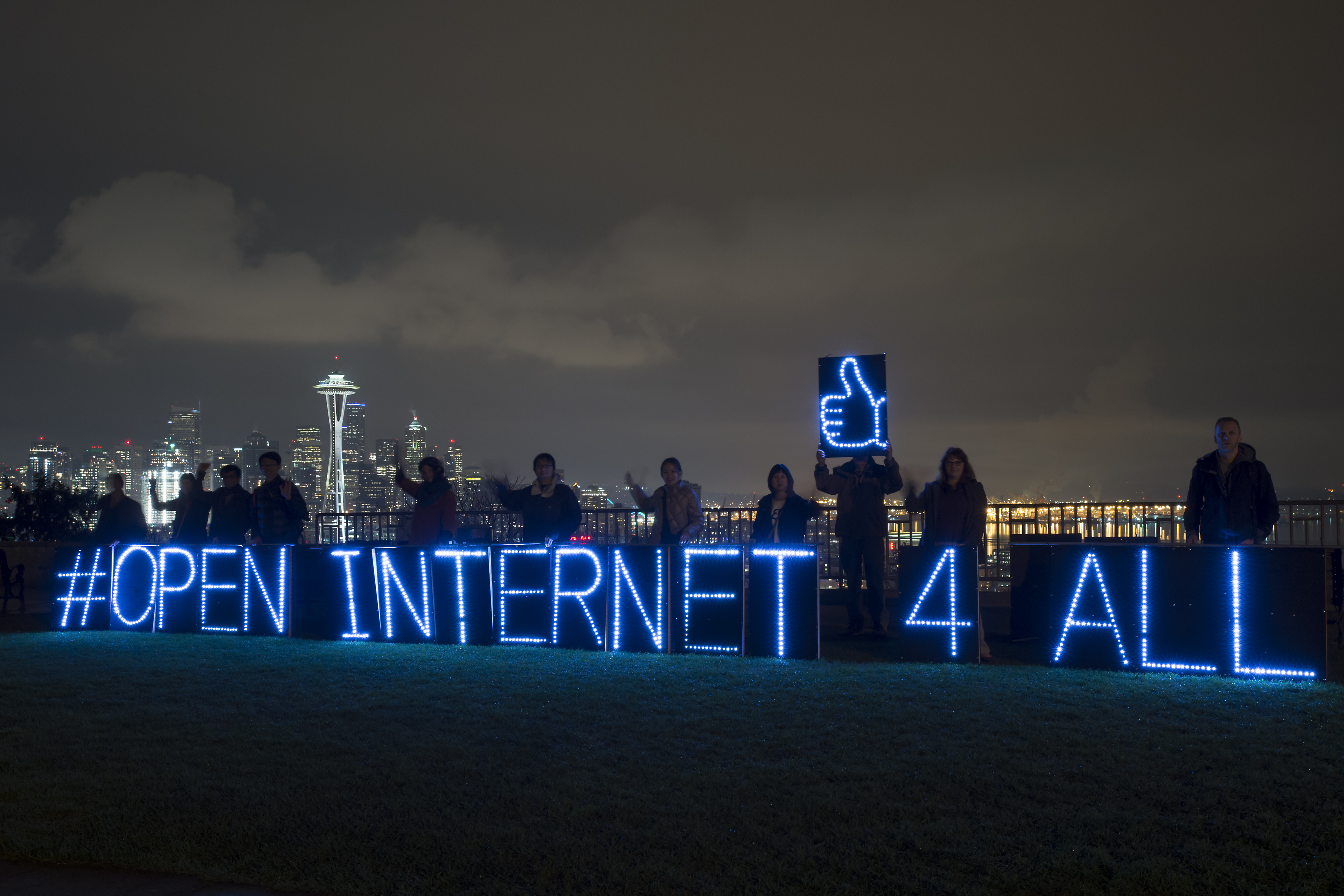WASHINGTON, D.C. — The Online News Association and five journalism and transparency organizations urge the Federal Communications Commission to halt its push to end net neutrality and hold hearings to hear the public’s concerns about this issue.
Three years ago, after careful consideration, ONA urged the FCC to embrace net neutrality and preserve an open internet. We were delighted later that year when it did exactly that.
To our dismay, the FCC, under chairman Ajit Pai, is now speeding toward repealing those very net neutrality rules before the end of this year. Such a repeal would allow internet service providers to “block, speed up or slow down websites, applications, and services; charge online companies for access to an ISP’s customers and block those that don’t pay; and to enter into deals with online companies to put them in a fast lane to the ISP’s customers” according to Barbara van Schewick, a Stanford law professor and director of the Stanford Center for Internet and Society.
As we wrote in 2014, there are legitimate arguments for giving ISPs more opportunities and incentives to build out a more robust internet infrastructure and for improving Americans’ access to the internet. But repealing net neutrality rules is the wrong way to go about it.
While we don’t believe repealing net neutrality rules will result in a total collapse of the internet as we know it, the bar need not be set that low. More likely, these changes will have more subtle, but no less pernicious, effects. By giving priority to some content, making it faster and easier to consume, ISPs could, intentionally or not, give some information or journalistic outlets a market advantage, solely because they can afford higher tolls.
Over time, preferential treatment through “prioritized” or “fast lanes” could strike a blow to media diversity, innovation and the free flow of information. Creating or even maintaining alternative or independent perspectives could become financially untenable. Worse, since many ISPs are also content creators, they’d have an incentive to prioritize their content over that of competitors.
Ultimately, repealing these rules gives ISPs the ability to influence, or even outright control, what sites and services Americans can access. Limiting our access to information runs counter to the 30-year history of the public internet and the nearly 250-year history of the United States.
Polls show net neutrality is supported by 60 percent of the American public. Meanwhile, researchers have shown that more than a million comments urging the FCC to remove net neutrality protections were fake.
To slow down or even stop the process, FCC Commissioner Jessica Rosenworcel, a supporter of net neutrality, is urging the public to contact the FCC directly. “Make a ruckus,” she says.
“Reach out to the rest of the FCC now.” Her desire, and we agree, is for the FCC to hold hearings around the country to hear directly from the public.
Joining us are the Association for Education in Journalism and Mass Communication, International Society of Weekly Newspaper Editors, Society of Environmental Journalists, Society of Professional Journalists and Sunlight Foundation.
We believe the internet is the public’s forum and should remain open and accessible. The FCC should not repeal the successful net neutrality rules currently in place.
About ONA
The Online News Association is the world’s largest association of online journalists. ONA’s mission is to inspire innovation and excellence among journalists to better serve the public. The membership includes news writers, producers, designers, editors, bloggers, technologists, photographers, academics, students and others who produce and distribute news for digital delivery systems. ONA also hosts the annual Online News Association annual conference and administers the Online Journalism Awards.
This post was updated on Dec. 14 to reflect ISWNE’s participation in this statement to the FCC.

